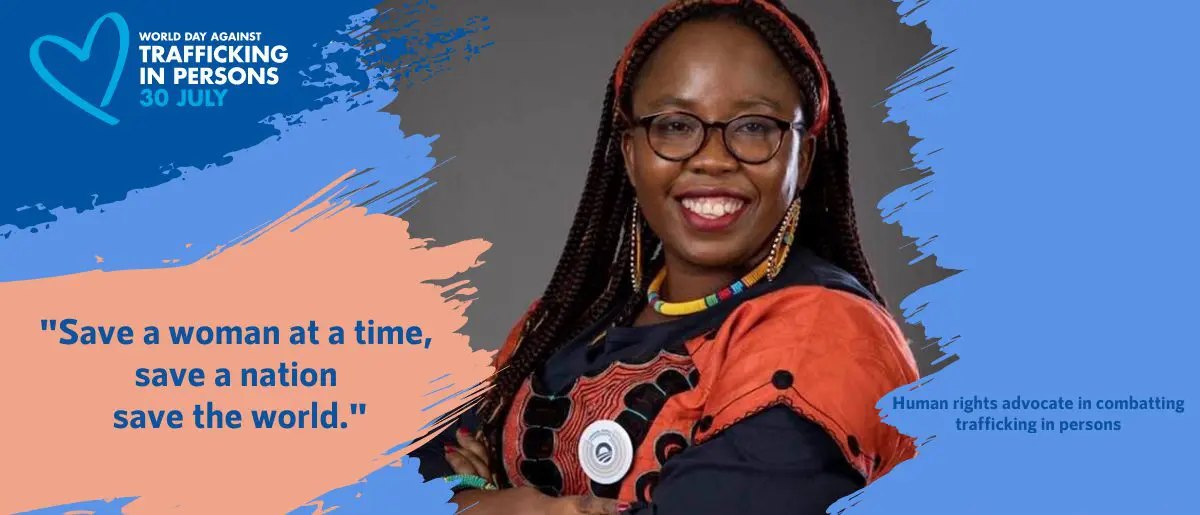


Francisca is now a human rights advocate and through her “Survivors’ Network”, which is managed by survivors of human trafficking, she has helped more than 5,000 women and girls in Cameroon and worldwide to escape human trafficking and gender-based violence situations.
“I now educate my community and country to make them aware that human trafficking exists, and I advise them on preventive measures,” she says. Through its outreach work, especially in rural areas, the Network aims to prevent women and children from falling prey to traffickers.
“We visit communities, schools, churches and markets to conduct workshops. The majority of the people we speak to really believe what we are saying,” says Francisca. Some realise that they have been victims of domestic trafficking themselves or that their children are currently being exploited, she adds.

The Survivors’ Network provides victims with temporary or long-term shelter or accommodation in safe houses, where they also receive psychosocial support to help them be reintegrated into society. It also operates a programme of “economic empowerment” for survivors.
Following an assessment defining the needs of the victims, they are trained in groups. After their training, they are provided with the resources needed to start their own company. “With the skills these women acquire, many of them have successfully applied for jobs or now run their own businesses.”

The inclusion of survivors in the development of anti-human trafficking policies is an important aspect that need to be considered by national governments and international organizations, says Francisca. “Survivors who are speaking out like myself play an essential role in assisting other victims to leave their exploitative situations and even add their voices to make a change and combat this crime.”
Francisca also stresses the need to support victims of human trafficking both economically and mentally to enable their participation in legal proceedings against their perpetrators. “Too often, survivors are neglected and in some cases the perpetrators go free while the survivors become the victims,” she concludes.






